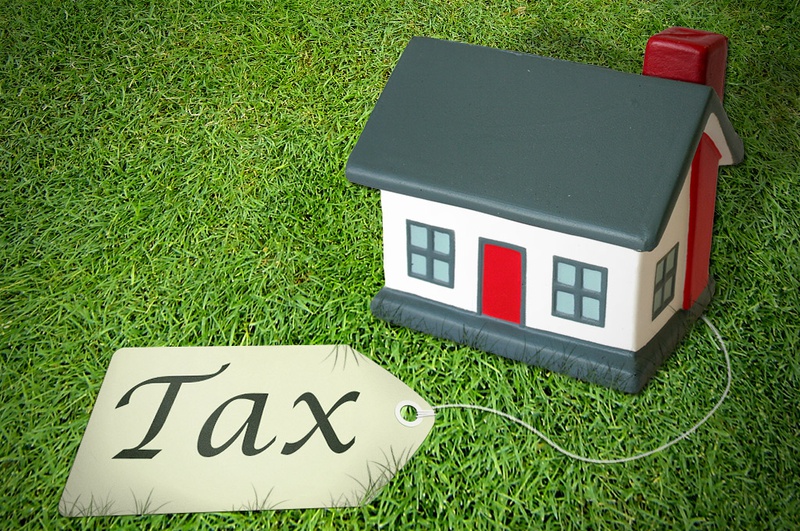Property taxes in Pakistan are one of the hot topics in Pakistan as it is a primary source of black money in Pakistan. As a result, the government fails to collect tax revenues from the real estate sector. However, the previous government of Pakistan devised a plan to bring in vast sums of money and ensure the growth of the real estate sector.
As a result, many people started to invest their money into property as the government eliminated the condition of showing their assets. The overseas Pakistanis made huge investments and bought many properties to earn huge returns on their investments.
This blog will share different types of property taxes in Pakistan. So, let’s discuss all of these property taxes!
What is a Property Tax?
A property tax is a tax on the immovable property where people own, rent, and buy or sell a property. Property tax is a provincial tax with varying rates. Each local government sets its property tax rates either flat or percentage.
This type of tax is levied on the annual rental value. If a person has rented out his space, getting a certain amount in return, he will be liable to pay taxes. The property can be a residential property, commercial property, or mixed-use building.
However, paying taxes in Pakistan has always remained a dilemma in Pakistan. People evade taxes on their properties, choosing illegal sources, and turning their money into black money.
One of these methods is by showing the DC rates on the documents. The actual rates of a property are not mentioned in the papers. As a result, they make money without paying the government.
You need to pay these property taxes before you start building your home as you have to pay a penalty if you delay tax when you buy a plot. You can also get home loans in Pakistan to build a house at a low cost.
A tax year of Pakistan begins on the 1st of July and ends on the 30th of June every year. So, your property tax year begins when the government announces a budget in Pakistan.
Types of Property Taxes in Pakistan
There are four types of property taxes in Pakistan. Moreover, we will discuss the current tax percentage in Pakistan.
- Capital Gains Tax (CGT)
- Capital Value Tax (CVT)
- Withholding Tax (WHT)
- Stamp Duty
Let’s move on to discussing all of these taxes one by one!
Capital Gains Tax (CGT)
When someone sells a property, they earn a profit. This profit is known as capital gains. For this, the federal government levies a certain percentage of tax on this gain. This percentage depends on the holding period of the property. So, a property holding period of more than three years is exempted from the capital gain tax.
| Holding Period | Capital Gains Tax |
| 1 year | 10% |
| 2 years | 7.5% |
| 3 years | 5% |
| more than 3 years | 0% |
The federal government levies CGT on a property based on market valuation. Moreover, a seller can also find these rates from the Federal Board of Revenue department to remove any uncertainties and confusion.
Capital Value Tax (CVT)
On the contrary, a capital value tax (CVT) is calculated and paid when you purchase a property. A buyer of the property pays this tax. CVT is a provincial tax against the CGT, which the federal government collects.
The Capital Value Tax rate is as low as 2% of the property’s value at the time of purchase agreement, as mentioned in the Federal Act, 2006. However, many people evade this tax by revealing only DC rates instead of the actual market value of their immovable property.
If someone transfers property as a gift or inheritance, this property has been exempted from the CVT. On the other hand, the transfer of property to someone not in blood relations has to pay this tax if he received property as a gift or as a transaction.
Withholding Tax (WHT)
Withholding tax, also known as advance tax, is payable when registering a sales deed. The federal government is responsible for collecting WHT from both buyers and sellers. However, the WHT rates depend on the type of buyers. If the buyer has filed tax returns with the Federal Board of Revenue (FBR), he will be liable to pay as low rates like 2%. On the other hand, non-filers will have to pay WHT as high as 4% of the property value.

On the contrary, the sellers have to pay lower WHT tax than the real estate buyers. If the sellers are tax filers, they pay only 1% of the deal reached. Otherwise, they are liable to 2% of the amount received for being the non-filer.
Moreover, this ‘advance’ tax can be paid as a part of the tax liabilities of a tax filer or as a part of a Capital Gains Tax (CGT) paid by the seller.
Stamp Duty
While registering your property, you have to pay stamp duty. This stamp duty varies in each province. However, you have to pay 3% of the value of your property at the time of registering your property.
Conclusion
In sum, the federal government will collect some of the taxes. On the other hand, some of the taxes will be paid by the provincial governments. Lastly, the buyers and sellers are liable to pay their taxes. To avoid any penalty and scam, you must know all types of property taxes in Pakistan.




